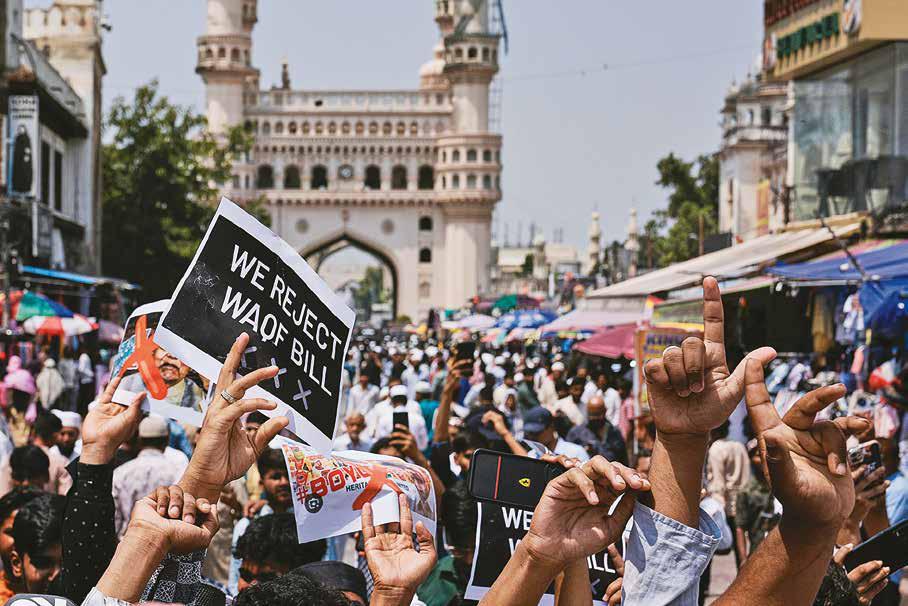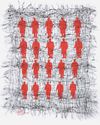The Minority Report

WAY back in 1929, Mohandas Karamchand Gandhi wrote in Young India that “numerical strength savours of violence when it acts in total disregard of any strongly felt opinion of minority”. Dr. B.R. Ambedkar stated resolutely in the Constituent Assembly debates that “rights of minorities should be absolute rights. They should not be subject to consideration as to what another party (read nation) may like to do to minorities within its jurisdiction”. In the West, John Stuart Mill warned that representative democracy, with all its political and moral trappings, is susceptible to the “tyranny of the majority”, and so in the interest of democratic principles, nations must determine the limits of collective interference in the life of the individual.
The rights of the minority can be hollowed out by the acts of transgressions committed by governments and by those of the social majority, engendering both social and political tyranny. The three political philosophers; Gandhi, Ambedkar and Mill, quoted above, find themselves on common ground arguing for institutionalisation of minority rights as sinews of democratic equality and a good republic. The Waqf Act, 2025, de-institutionalises the minority rights as enshrined in the Indian Constitution, violates several provisions of fundamental rights, including the principles of secularism, threatens the moral consciousness to fraternity and tolerance in India, and panders to the “majoritarianism” of the Hindutva project in the name of “one country, one people, and one nation”.
هذه القصة مأخوذة من طبعة May 01, 2025 من Outlook.
ابدأ النسخة التجريبية المجانية من Magzter GOLD لمدة 7 أيام للوصول إلى آلاف القصص المتميزة المنسقة وأكثر من 9,500 مجلة وصحيفة.
بالفعل مشترك ? تسجيل الدخول
هذه القصة مأخوذة من طبعة May 01, 2025 من Outlook.
ابدأ النسخة التجريبية المجانية من Magzter GOLD لمدة 7 أيام للوصول إلى آلاف القصص المتميزة المنسقة وأكثر من 9,500 مجلة وصحيفة.
بالفعل مشترك? تسجيل الدخول

Coding Careers Climb, Consistently
As digital disruption accelerates, Outlook examines how a premier tech institute is changing the game with steady placement growth and sectoral shifts

Shaping Tomorrow's Leaders
Sri Siddhartha Academy of Higher education: pioneering teamwork and collaboration, offering a transdisciplinary approach for medical, engineering, and management students and research scholars

Building Leaders Through Innovative Education
PIMR Indore is nurturing innovative business leaders, entrepreneurs, thought leaders, policymakers, and agents of social change through research-driven and globally aligned transformative education

Big Dreams, Thin Cast
While India is expanding its foreign service to reflect its evolving role in the world order, it continues to be dwarfed by the diplomatic missions of China and other countries in both size and skill

Engineering Futures
Despite global economic challenges, a premier Indian engineering institute showcases its resilience with robust placement outcomes. Outlook takes a look

Education and Employability
In an ever-evolving employment landscape, Outlook examines a historic Indian university that demonstrates adaptability and growth through its placement outcomes

Shaping Agile Leaders
IMT Ghaziabad achieving excellence and nurturing leadership through knowledge, innovation, tech-readiness, entrepreneurial mindset and sustainability

From placements to Propel'ments
Rather than chasing a dwindling pool of entry-level jobs, young Indians can become creators and deployers of AI solutions that radically boost productivity across sectors

Speak, Memory
V.D. Savarkar is everywhere—in and outside the Andaman Cellular Jail—while the contributions of other revolutionaries who were imprisoned there receive little attention

KIET Flies High in Campus Placement
KIET Group of Institutions, Delhi-NCR, Ghaziabad with an impressive alumni strength of over 20000 students, speaks volumes of its popularity as a hiring campus for top global and Indian companies that abound in Delhi-NCR region
